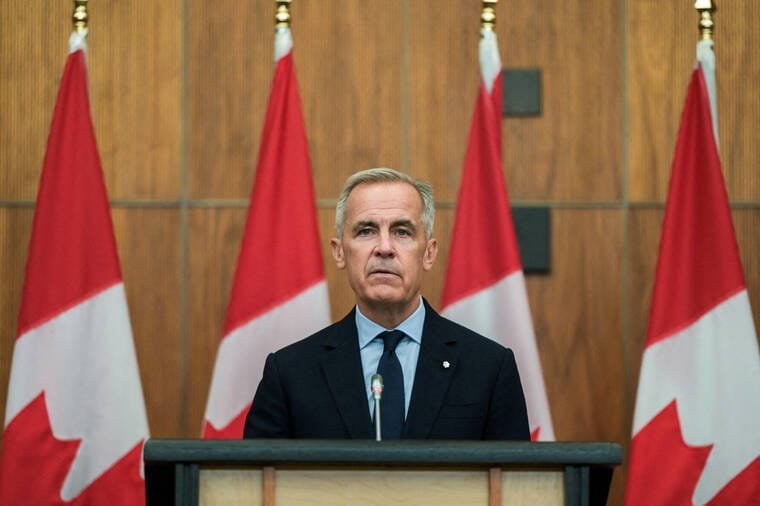Canadian Prime Minister Mark Carney on August 22, announced that Canada will remove a broad range of retaliatory tariffs on U.S. goods, marking a strategic recalibration of its approach toward its southern neighbor. Effective from September 1, tariffs on goods covered under the U.S.–Mexico–Canada Agreement (USMCA) will be lifted. However, tariffs on U.S. steel, aluminum, and automobiles will remain in place for now, signaling a cautious but meaningful engagement with the United States.
Carney emphasized that the move is consistent with Canada’s commitment to USMCA and comes in the wake of U.S. assurances that it will not levy tariffs on compliant Canadian exports, a development he described as a positive foundation for the decision. He asserted that this rollback effectively restores largely free trade between the two nations for goods under the agreement, noting that Canadian exporters continue to enjoy low tariff exposure compared to other trade partners.
The policy reversal follows a progressively softer tone from Carney, who, after taking office in April, scaled back on previously aggressive trade measures, such as shelving a proposed digital services tax and postponing further sanctions tied to U.S. actions. The decision was also catalyzed by a recent call with President Trump, during which Carney received assurances that tariff relief would help rekindle stalled economic and security talks. Trump welcomed the gesture, calling it a “nice” move and reaffirming his interest in continuing discussions on trade and broader cooperation.
Financial markets responded swiftly: the Canadian dollar appreciated by approximately 0.5% against its U.S. counterpart, reflecting investor optimism about improved bilateral relations. Meanwhile, speculation looms over upcoming USMCA renegotiations, expected to begin soon and spanning six to eighteen months providing a window for Canada to preserve leverage in keeping select tariffs, especially on steel, aluminum, and autos as bargaining chips.
Domestically, critics particularly from the opposition Conservatives have pounced on the move, arguing it represents an overly conciliatory posture toward the U.S.. It stands in stark contrast to the hardline rhetoric from Carney’s election campaign, which positioned him as a defender against U.S. protectionism. Yet as prime minister, his posture now leans toward pragmatism and stability, aiming to strengthen Canada’s economic footing amid trade turbulence.





